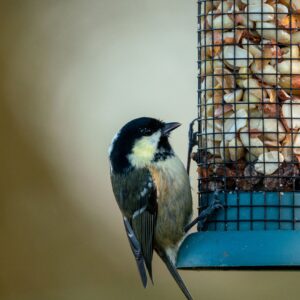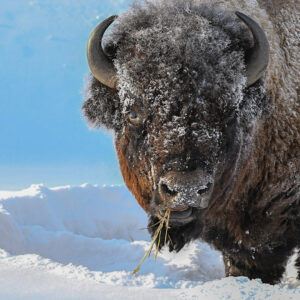A Note From Nature Canada Member Margaret Atwood
 During the COVID-19 pandemic, millions of people around the world have turned to birds for solace – either via nest cams or through outdoor birdwatching in safe places. And millions have noticed the quieter streets and the cleaner air. As our days have been slowed down and our focus narrowed, we’ve been appreciating the natural world – some for the first time. And many have been rethinking the way life was being lived before the pandemic struck.
During the COVID-19 pandemic, millions of people around the world have turned to birds for solace – either via nest cams or through outdoor birdwatching in safe places. And millions have noticed the quieter streets and the cleaner air. As our days have been slowed down and our focus narrowed, we’ve been appreciating the natural world – some for the first time. And many have been rethinking the way life was being lived before the pandemic struck.
So many have been listening to birdsong this spring partly because birds represent hope. As my late spouse Graeme Gibson noted in his popular Bedside Book of Birds, for many cultures in many times birds represented the human spirit, its endurance, its resilience. And hope is something we all can use at this moment on our collective history.
We now have a choice to make. We can return to our former path to ecological collapse and environmental catastrophe driven by excessive consumption and the destruction of the natural world, burning through non-renewables and renewables alike at a rate that will reduce us to nothing in fifty years. Or we can change direction, and build nature-based and community-based recovery strategies.
We are in desperate need of sustainable economies that respect the laws of nature – including No Free Lunch and Everything Eats. We can’t keep taking from the natural world – from Earth, Water, and Air, from fish, flesh and fowl, from soil and sea – without giving back.
As we come together to care for one another in this pandemic, let us similarly come together to choose a different future for birds and nature all around us.
Given a chance, bird populations can recover. We know this from the many species that conservationists have brought back from the edge of extinction. But many more species – some of them once common – are seeing startling declines. We can help birds – and, ultimately, ourselves – by restoring nature in our backyards, including native species; avoiding herbicides and pesticides; keeping our cats inside, or in catios; making windows visible to birds; and turning off the lights at night when these long-distance travellers are migrating over our homes. Ask your municipality to pass no-roam bylaws to keep our pets and wildlife apart and to ensure bird-friendly standards in new buildings. Cities are dangerous places for birds: we can work to make them safer.
At the national and provincial levels, let’s protect more of Canada’s grasslands, wetlands and forests, to safeguard bird habitat; and increasing protected marine areas and shores not only helps birds, but leads to increased fish levels. Human life depends on healthy oceans: they make 60 to 80 percent of the oxygen we breathe. If the oceans die, so will we.
We’ve been given another chance. This time, let’s not miss it.
Nature Canada is deeply grateful to Margaret Atwood for her long-time membership support and her voice on Canadian environmental issues. Thank you!
Photo taken by Luis Mora.



